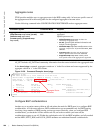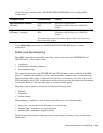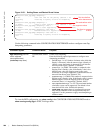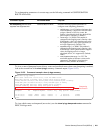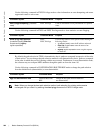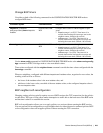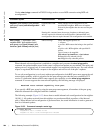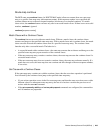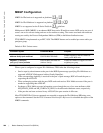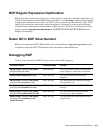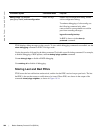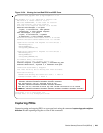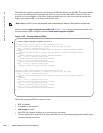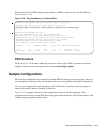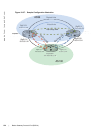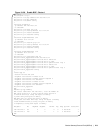
266 | Border Gateway Protocol IPv4 (BGPv4)
www.dell.com | support.dell.com
MBGP Configuration
MBGP for IPv6 unicast is supported on platforms e
t
c
MBGP for IPv4 Multicast is supported on platform c e
t
s
MBGP is not supported on the E-Series ExaScale e
x
platform.
Multiprotocol BGP (MBGP) is an enhanced BGP that carries IP multicast routes. BGP carries two sets of
routes: one set for unicast routing and one set for multicast routing. The routes associated with multicast
routing are used by the Protocol Independent Multicast (PIM) to build data distribution trees.
FTOS MBGP is implemented as per RFC 1858. The MBGP feature can be enabled per router and/or per
peer/peer-group.
Default is IPv4 Unicast routes.
When a peer is configured to support IPv4 Multicast, FTOS takes the following actions:
• Send a capacity advertisement to the peer in the BGP Open message specifying IPv4 Multicast as a
supported AFI/SAFI (Subsequent Address Family Identifier).
• If the corresponding capability is received in the peer’s Open message, BGP will mark the peer as
supporting the AFI/SAFI.
• When exchanging updates with the peer, BGP sends and receives IPv4 Multicast routes if the peer is
marked as supporting that AFI/SAFI.
• Exchange of IPv4 Multicast route information occurs through the use of two new attributes called
MP_REACH_NLRI and MP_UNREACH_NLRI, for feasible and withdrawn routes, respectively.
• If the peer has not been activated in any AFI/SAFI, the peer remains in Idle state.
Most FTOS BGP IPv4 Unicast commands are extended to support the IPv4 Multicast RIB using extra
options to the command. See the FTOS Command Line Interface Reference for a detailed description of the
MBGP commands.
Command Syntax Command Mode Purpose
address family ipv4 multicast
CONFIG-ROUTER-BGP
Enables support for the IPv4 Multicast
family on the BGP node
neighbor [ip-address |
peer-group-name] activate
CONFIG-ROUTER-BGP-AF
(Address Family)
Enable IPv4 Multicast support on a BGP
neighbor/peer group



